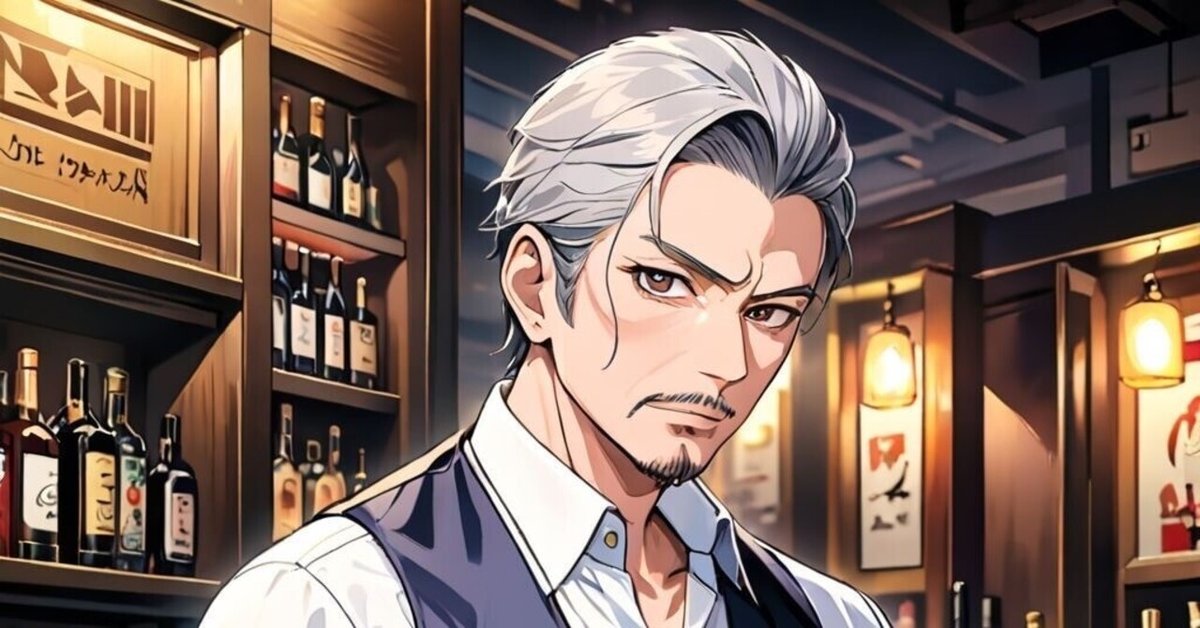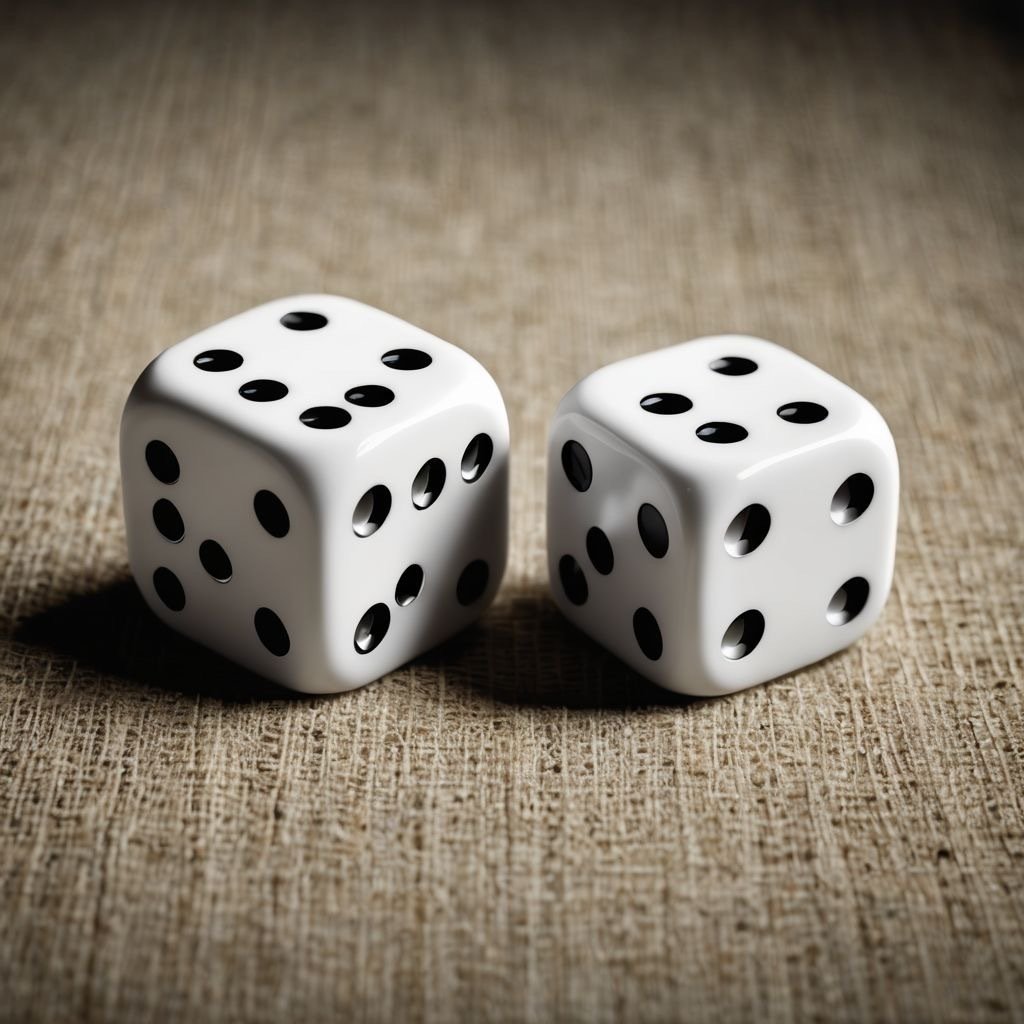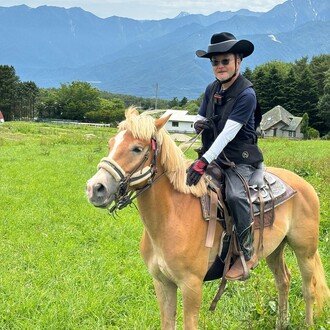
"The Ninkyō Bartender, Genzō Irifune" Episode III "Who will be the winner?"
This novel is a work by Gijin Ohmura, translated by AI. All copyrights are owned by Gijin Ohmura, and reproduction is prohibited.
Genzō Irifune is a 65-year-old bartender, considered a senior citizen in the early stages of old age. His birthday falls on December 25th.
Genzō finds it ironic that someone like him shares the same birthday as Christ.
In his youth, he was a bit of a delinquent and worked as an errand boy for a senior who had become a yakuza. However, he never formally joined the syndicate by taking their ceremonial sake. The group Genzō was associated with wasn’t a violent gang but a tekiya (street vendor) organization, where he was taught the code of chivalry rather than the art of street fighting.
Genzō entered the bartending profession after turning 30, starting as an apprentice at a small, rundown bar. After about ten years of training, he moved to his current establishment. Five years into working there, the owner-bartender offered him the opportunity to take over the bar, and Genzō has been running it ever since.
The regular patrons or locals fully aware of Genzō’s past, warmly accept him as one of their own. There’s no doubt that the bonds he shares with these people serve as a pillar of emotional support in his life.
Genzō’s life has been far from smooth—marked by turmoil and challenges—but he has overcome them, shaping the person he is today.

As usual, Genzō finished cleaning the bar, polished the glasses and bottles, and then moved on to wiping down the counter. This small establishment, located near a station in a rundown part of town, featured a countertop made from a single slab of oak—an enduring testament to the strong preferences of the previous owner.
First, Genzō removed any dirt with a damp cloth, then carefully wiped the counter down with a well-wrung duster. To him, keeping the counter spotless was one of the bartender’s most important duties. This counter had borne witness to countless complaints, laments, and even tears from his patrons, and Genzō saw maintaining it as a way to honor its silent role in their lives.
After wiping the counter, Genzō was stocking the refrigerator with supplies when he heard the door open. The sign on the door still read Closed, and he hadn’t yet put out the open sign. At this hour, it could only be one of his regulars.
Sure enough, it was Mr. Komatsu from the neighborhood bookstore. A community leader and member of the shopping district association, Komatsu was likely in his seventies.
“Sorry to bother you before opening, Genzō-san.” Komatsu said.
“Good evening, Komatsu-san. I was just finishing up preparations. Please, have a seat,” Genzō replied, motioning to the center seat at the counter. “The usual beer?”
“Yeah, that’d be great,” Komatsu said with a nod.
Genzō opened a small bottle of beer and poured it into a glass, sliding it across the counter with practiced ease. Komatsu took a long sip, finishing it in one go, and then sighed.
“Genzō, mind lending an ear? There’s trouble again.”
“Another case of ‘when in doubt, ask Komatsu-san,’ is it? You’ve got your hands full, don’t you?” Genzō replied with a smirk.
“They ought to call me ‘always in trouble Komatsu,’” the older man chuckled, pouring the rest of the beer into his glass.
Komatsu-san’s trouble revolved around a dispute among the shopping district members. For their year-end sales campaign, they had organized a raffle with a grand prize: “A luxurious domestic hot spring trip for two.” However, no one had claimed the prize.
Canceling the reservation would incur cancellation fees, which felt like a waste. On the other hand, since the trip was funded by the association’s membership dues, simply handing it over to someone was out of the question. Faced with this dilemma, Komatsu-san was at his wit’s end.
“If someone could just buy the trip at face value, that would solve everything, but there’s no one in this association with that kind of money,” Komatsu grumbled, his expression clouded with frustration.
Listening to his plight, Genzō silently acknowledged that they’d need to come up with a creative solution to the problem.
“Kat-chan from the clothing store said, ‘If it’s half-price, I’d be willing to buy it,’” Komatsu-san continued.
“But wouldn’t selling it at half-price end up costing you more than the cancellation fee?” Genzō asked.
“Exactly,” Komatsu-san sighed, running a hand through his thinning hair. “That’s why some members are against it. But no one else is stepping up to take it, either.”
“When’s the trip scheduled for?” Genzō inquired.
“About two weeks from now. If we keep stalling, the cancellation fees will just go up,” Komatsu-san said, frustration thick in his voice.
“That’s quite a predicament,” Genzō replied sympathetically.
“Hey, Genzō,” Komatsu-san leaned forward slightly, his tone almost pleading, “isn’t there some way to sort this out? Something clever, like one of those legendary Ōoka judgments?”
“I’m not sure I can come up with something so ingenious,” Genzō said humbly, “but let me think about it. How about this—why don’t you drop by again tomorrow evening? I’ll see if I can come up with a solution by then.”
Komatsu nodded, a glimmer of hope in his eyes. “Alright, I’ll hold you to that, Genzō.”
The idea that Genzo came up with was based on a gambling system. First, the head of the shopping district would act as the house, and members would pay a participation fee to enter the prize draw. Each round would cost 2,000 yen to play, but if a participant won, they could use that amount for the next round. On the other hand, those who lost could continue participating by paying an additional 2,000 yen.
As the rounds progressed, the fees would gradually increase. Naturally, since this would be considered gambling, winners wouldn't receive cash prizes. In the end, only one winner would be awarded a travel coupon as a prize.
“It would be easy to decide the recipient in a lottery, but in a one-time game, only one winner can celebrate,” Genzo explained to Komatsu. By incorporating gambling elements, the structure allowed for more people to enjoy the challenge, culminating in the final winner receiving the travel coupon.
Genzo thought that this would not only boost participants’ enthusiasm but also prevent the funds collected from going to waste on the trip.

That Sunday night, 14 members gathered at the bar. Ten would take part in the game, while the remaining four would be onlookers. The cramped bar was so full that there was barely room to stand.
"The rules are as Gen-chan just explained. Participants must each hand over 2,000 yen to our chairman, Tadashi. This money will be used to help cover travel costs," Komatsu announced.
"We absolutely must avoid any cheating, so the dice will be rolled separately by myself and Genzo simultaneously," he added.
"After rolling we'll have a game of odds and evens based on the total of the dice results," said Sakazaki, the convenience store owner, stroking his chin.
"Those participating, please write your names on this memo," Komatsu said, distributing the sheets.
They divided the counter into two sections: the right side for even numbers (chō) and the left side for odd numbers (han). A cloth was set down in the middle for rolling the dice.
In the first round, all 14 participants, including the onlookers, joined in. The participants included six betting on odd and eight on even. In the first round, they collected 24,000 yen in bets. “We have odd and even lined up,” Komatsu announced, creating a tense atmosphere.
"Alright, we're off! Let’s begin!" Everyone held their breath as the teacups were opened simultaneously. The results were three and four.
"Three and four total seven. It's odd," Genzo announced.
Cheers of "Oh!" and "Ah!" erupted around them, mixed with disappointed groans of "Ugh." The outcome of the game had taken an unexpected turn, eliciting a range of reactions from the participants. The six betting on odd were ecstatic, while the eight betting on even sighed in defeat. The joy of the winners and the dismay of the losers intertwined in the air, intensifying the excitement.
Mr. Komatsu tightened the atmosphere while encouraging the participants for the next challenge. "Shall we move on to the next round? Come on, everyone, get your bets ready!" he shouted, further boosting the excitement in the room. Seeing this, Genzo was glad that his ideas were providing enjoyment to the participants.
Genzo had a faint smile on his face as he hoped that the increased bets in the next round would open up pathways to resolve the issues facing the shopping district.
"We're moving into the next competition, so people playing with the 'Chō' please raise your cards. Those playing with the 'Han' should keep their cards as they are," Genzo instructed, and the memo papers shifted in response. Half of the cards that were in 'Han' moved to 'Chō'. The eight people who lost in 'Chō' ended up having to pay an additional venue fee of 2,000 yen each, bringing the total to 16,000 yen for the house. The eight players split into four each on 'Chō' and 'Han'. The house fund increased to 40,000 yen.
The next roll resulted in a 5 showing 4-1, indicating 'Han'.
The four players who had bet on 'Chō' lost twice.
Once again, the cards from the losing players in 'Chō' were removed, and the remaining cards were rearranged evenly between 'Chō' and 'Han'. From among the losers, two individuals paid the venue fee to try again. The house gained an income of 4,000 yen, bringing the total to 44,000 yen.
After the third round, only three players remained undefeated. "From here on out, the venue fee will be doubled to 4,000 yen. How does that sound?" Two people raised their hands. This resulted in an additional income of 8,000 yen. The competition now involved five players: three on 'Han' and two on 'Chō'. At this point, the house's income increased to 52,000yen.
“Let’s proceed to the fourth round,” was announced as the dice were rolled.
A 10 was rolled, showing 4-6.
'Chō' was the outcome, resulting in two winners. Only Mr. Chō, the owner of the soba restaurant Chōju-an, remained undefeated. President Tabata from the pharmacy also had one loss but was still in the game.
“Now, we’ll start the fifth round. The venue fee will be 6,000 yen. How does that sound?”
Indeed, the 6,000 yen fee was quite steep. No one other than the two winners raised their hands.
The next match turned into a one-on-one duel between Mr. Chō and President Tabata.
“Mr. Chō, you have been undefeated, right? May I place a bet against you?” President Tabata asked Mr. Chō.
“That’s fine.”
“Then, I’ll bet on 'Han'.”
“Well, I’ll go with 'Chō'.”
President Tabata’s bet moved to 'Han'.
The result of the fifth round was 'Han', giving President Tabata the victory.
Now both participants had one loss each.
“Now, for the sixth round, the venue fee will increase to 8,000 yen. What will you do?” Genzo asked, looking at Mr. Chō.
“If I pull out now, I’ll lose 2,000 yen. If I continue and lose, that’s an 8,000 yen loss. If I pull out and no one else plays, then the president’s win is guaranteed, right?”
“Yes, that’s correct.”
“Alright, let’s compete! Take my 8,000 yen!”
The crowd buzzed with excitement.
Finally, the house’s funds accumulated to 60,000 yen.
“The sixth round begins,” Genzo declared.
“Mr. Chō, please go ahead,” President Tabata urged.
“Well then, I’ll take you up on your offer and go first.” He moved his hand and placed his bet on 'Han'.
“Hmm. I wanted to bet on 'Han' as well, but it seems fate has decreed otherwise… Fine, if no one else is around, I will fight with 'Chō'.”
“Now, this will be the final match of the day. The winner of this match will receive a travel coupon. No matter the outcome, there will be no grudges. Is everyone ready?” Genzo made a theatrical announcement.
The crowd silently nodded in agreement.
“Then, let’s go!”
Mr. Komatsu and Genzo called out in unison as the two dice were thrown into their respective teacups.
The cups rattled as they were shaken, then simultaneously covered.
“Let the match begin!”
The teacups were removed.
“1-1 for 'Chō'!”
A chorus of “Ah,” “Uh,” and “Oh” filled the bar.
“I’m truly sorry, Mr. Chō.”
“No, no, I placed my bet first, so I have no complaints. Please enjoy your trip.”
“Thank you. As a token of appreciation, let me treat everyone to a drink!”
“Yay!” The crowd cheered.
“This will be on me, but please consider it a treat from Chōju-an,” President Tabata said, further elevating the atmosphere among the crowd.
“Thank you, President Tabata. In return, I’ll offer Mr. Chō a glass of that 28-year-old Scotch I mentioned. It's on the house,” Genzo announced.
“Oh, Gen-chan, thank you! I’ll enjoy it without hesitation! It feels like I’ve retrieved half of my loss!” Mr. Chō replied happily.
“Everyone, don't forget to order your New Year's soba from Chōju-an!” Mr. Komatsu shouted energetically, prompting the crowd to erupt in a unified, “Oh!” accompanied by applause.
As the sounds of beer and highballs being poured filled the air, and the cheerful voices of the participants echoed around, Genzo felt that this moment was becoming something special for everyone.
He felt a small sense of satisfaction knowing that his ideas were making people smile and strengthening the bonds within the community.
This small wager was not merely a form of entertainment but had become a means to boost the morale of the entire shopping district, creating a bond that made for a pleasant year-end celebration. The hopes and empathy encapsulated in this moment reminded everyone of the importance of connections with others, which, at times, can be forgotten in the daily grind.
Mr. Komatsu was also smiling as he counted the cash received from Tadasi, the host.
“Gen-chan, you really helped us out. Everyone’s excited, and we didn’t have to reduce the shopping district fees, and we resolved the issues too. Thank you so much!”
“No, everyone here is one of my valued customers.”
“No, resolving a dispute with a wager is a brilliant idea; it puts Ooka's famous Judgement to shame!”
“Well, I’m glad that my humble experiences could be of help to everyone.”
As everyone’s chosen drinks were distributed and preparations for a toast began, Mr. Komatsu took the opportunity to address everyone.
“Thank you all for gathering here today. This place for betting—ah, I mean, for the auction—is quite special. This idea was conceived by our master, Genzo!”
A collective “Oh!” resonated through the establishment.
“Now, I would like to raise a toast in gratitude to our very own chivalrous bartender, Master Genzo Irifune. Please join me in this toast. Cheers!”
As Genzo raised his glass of on-the-rocks oolong tea, he felt thankful for the predecessors who had passed down this shop and the customers who filled it with life.
END
Ninkyo-do (Ninkyo ):
The term "Ninkyō-dō" refers to a way of life characterized by maintaining one’s honor, valuing trust and loyalty, helping the weak, and challenging the strong, embodying a masculine spirit.
Synonyms for "Ninkyō" include "otokogi" (manliness), "jinkyō" (benevolence), "gikyōshin" (righteousness), and "kyōki" (chivalry).
On the other hand, organized crime groups often proclaim adherence to the "Ninkyō-dō" principle, but in reality, they do not shy away from criminal activities to secure their funding and often cause suffering to the vulnerable and the general public.
Ooka's famous Judgement:
It refers to a fair and humane judgment or ruling. Origin: This term is derived from the rulings given by Ooka Tadasuke (also known as Ooka Tada-suke), a renowned magistrate during the mid-Edo period, as depicted in narratives and scripts known as “Ooka Seidan.”
About the Auther
Ghjin Ohmura (pen-name )
A non-professional writer, who started writing novels and horseback riding after the age of 65. He is a medical doctor.
いいなと思ったら応援しよう!

